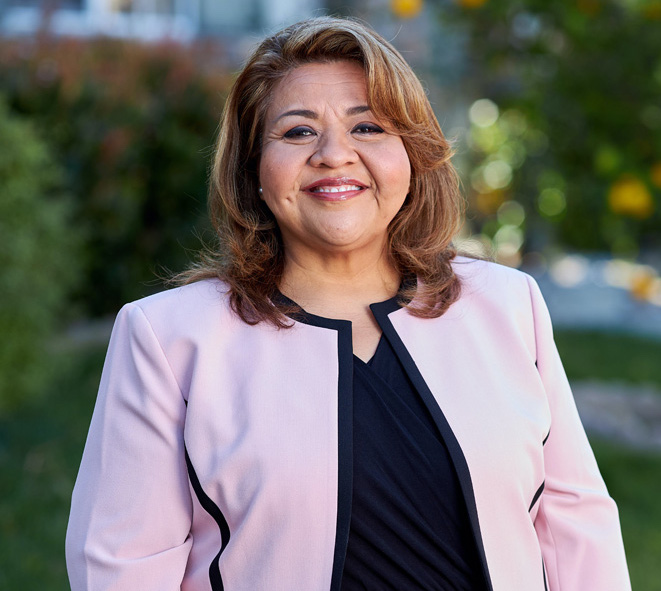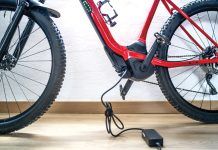LETICIA MUNGUIA, 49, (D)
Where do you live in the district and for how long?
I live in Chula Vista and have lived in the 79th Assembly District for 11 years.
Tell us a little about yourself and why you are running for the 79th assembly.
I grew up in southeast San Diego County and have spent my career as a community organizer, working to make things better for working families. The issues we face, from healthcare access and equity, to protecting and expanding workers’ rights, to delivering opportunities for every Californian, are not new. And yet, the global pandemic has lifted the curtain on how these issues are linked and their impact on people’s lives and livelihoods. That’s why it is critical that our next Assembly member not only be a fighter but also a healer, ready to repair the deep wounds too many have endured, not just over the last year but for far too long. I’ve spent my career advocating for working people – fighting to improve education, expand healthcare, strengthen our communities and ensure equity in the workplace. I’m running for assembly to continue that work – building a tomorrow for all.
What do you believe are District 79’s current challenges and why? What would you do to address them?
The top issue facing us is the pandemic. We need to vaccinate Californians, safely reopen schools, reopen our economy, and help communities rebuild from the pandemic, which will likely take many years. I believe we can achieve this, but we need focused, data driven leadership, which is what I will bring to the Assembly. Additionally, we need to make healthcare and education a top priority given that many are going to be experiencing the long-term effects of the pandemic, both physically as well as mentally, for a long time.
No one will work harder than I will for our working families, young people and seniors. As the daughter of immigrant parents from Mexico, I know what it means to have opportunity. I will always listen to the people I represent and fight for our communities, from building stronger schools to ensuring affordable college, access to healthcare, high-wage jobs and equity in our society.
The COVID-19 pandemic has shown health, social, economic and digital disparities, especially within marginalized communities of color. What can propose to help these communities?
The data has shown us that the pandemic has disproportionately impacted low-income communities and communities of color. These communities make up a disproportionate population of the essential workforce as well, so it is critical that they have equitable access to vaccines and therapeutics, helping accelerate the end of the pandemic. We also need to work to address the tremendous inequities these communities faced, and continue to face, in terms of access to healthcare, jobs and education. In the Assembly, I will work to close these gaps by directing investments in programs that directly benefit our communities in these and other areas.
With the COVID-19 pandemic, what negative impacts has it had in this district and how can you help at the state level?
The challenges AD 79 faces in terms of the pandemic are similar to those other Californians and other Americans are facing, from unemployment to learning loss to the physical and mental health impacts of COVID-19. I was pleased to see the governor sign the Golden State Stimulus which deployed direct relief to working families and dedicated funding for a variety of programs that will help Californians, particularly those hit hard by the pandemic, survive. In the Assembly, I will work to build upon this important deal and also ensure our region receives its fair share of federal stimulus funding recently passed in Washington.
Where do you stand on health insurance for all Californians and why?
I believe healthcare is a right, not a privilege, and the pandemic has laid bare the reason why tying health insurance to employment is a dangerous, outdated system that can cost people their lives. I support a single-payer, universal healthcare system.
What do you believe are the most underserved communities in the District and what kind of policies are needed to improve their daily lives?
National City, Lemon Grove, and Encanto are among the most underserved communities in AD 79. We need to work to create jobs with a living wage, retirement security, improve access to affordable housing and public transit options, and increase access to healthcare and childcare, to ensure these areas do not continue to be left behind. As an assembly member, I believe one of my duties will be to ensure the state budget prioritizes communities like these and that our communities receive their fair share of funding when it comes to these challenges.
Where do you stand on California’s climate change policies? What would you change?
Human caused climate change is the greatest existential threat to our planet and species in our history, and it is still fully within our control to end it. On the federal level, I was pleased to see the Biden Administration rejoin the Paris Climate Accords; on the state level, I believe California has been a pivotal leader in setting the tone and tenor of large- scale action on climate change with a focus on climate and environmental justice. California has set goals that make sense both environmentally and economically, and we can create thousands of good paying jobs while working to reduce our greenhouse gas emissions to targeted levels as we work to ultimately shift California to a zero-emission, renewable energy standard. We are running out of time to fix this crisis, and we must act quickly and with purpose. Education is critical and we must work with grassroot organizations to ensure that we are engaging our communities with trusted community allies to share the importance of climate change and the need to act now!
How would you direct K-12 public school education to mobilize recovery in the 2021-22 school year?
Helping students make up for the loss of learning will be critical to ensuring they are not left with the devastating impacts of the pandemic for the rest of their lives. We need to help our teachers, parents and students in achieving this through a combination of increased funding, assistance for families who continue to struggle to provide transportation and supplies for their children and investing in childcare for working parents. I also believe we need to allocate a dedicated source of funding to making school meals free for every student, year around. Additionally, I am supporter of keeping all the technology equipment issued during the pandemic at home and ensure that our students have access to learning tools, Chrome Books, iPad, and access to WIFI throughout the upcoming summer and into the new school year.














